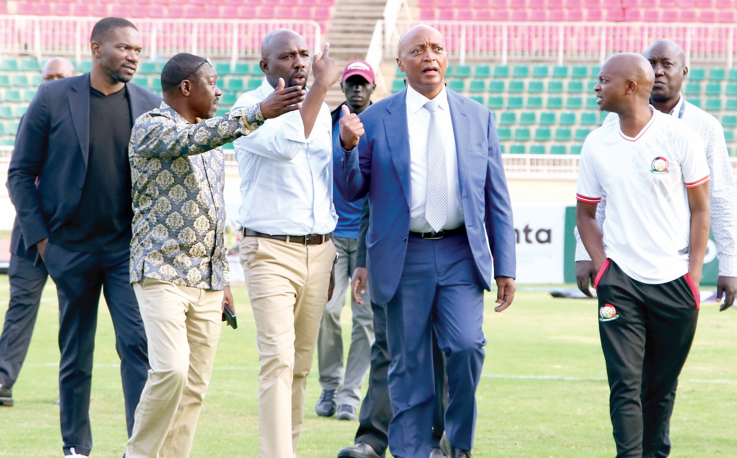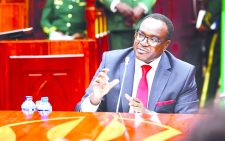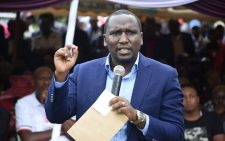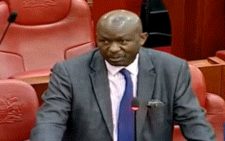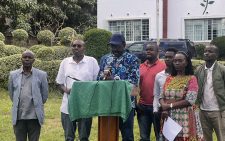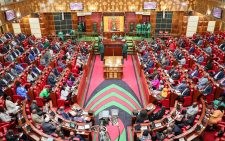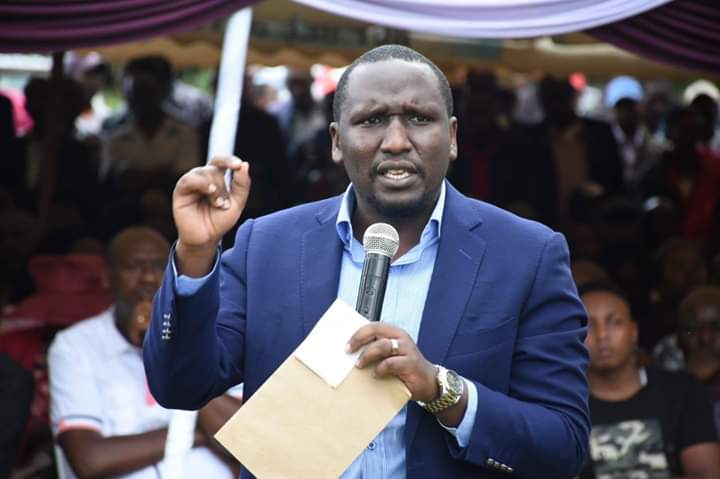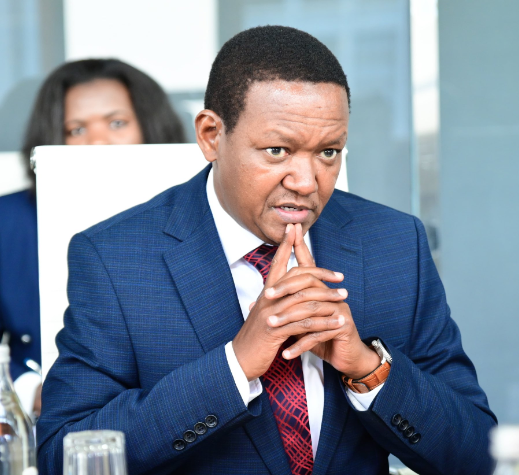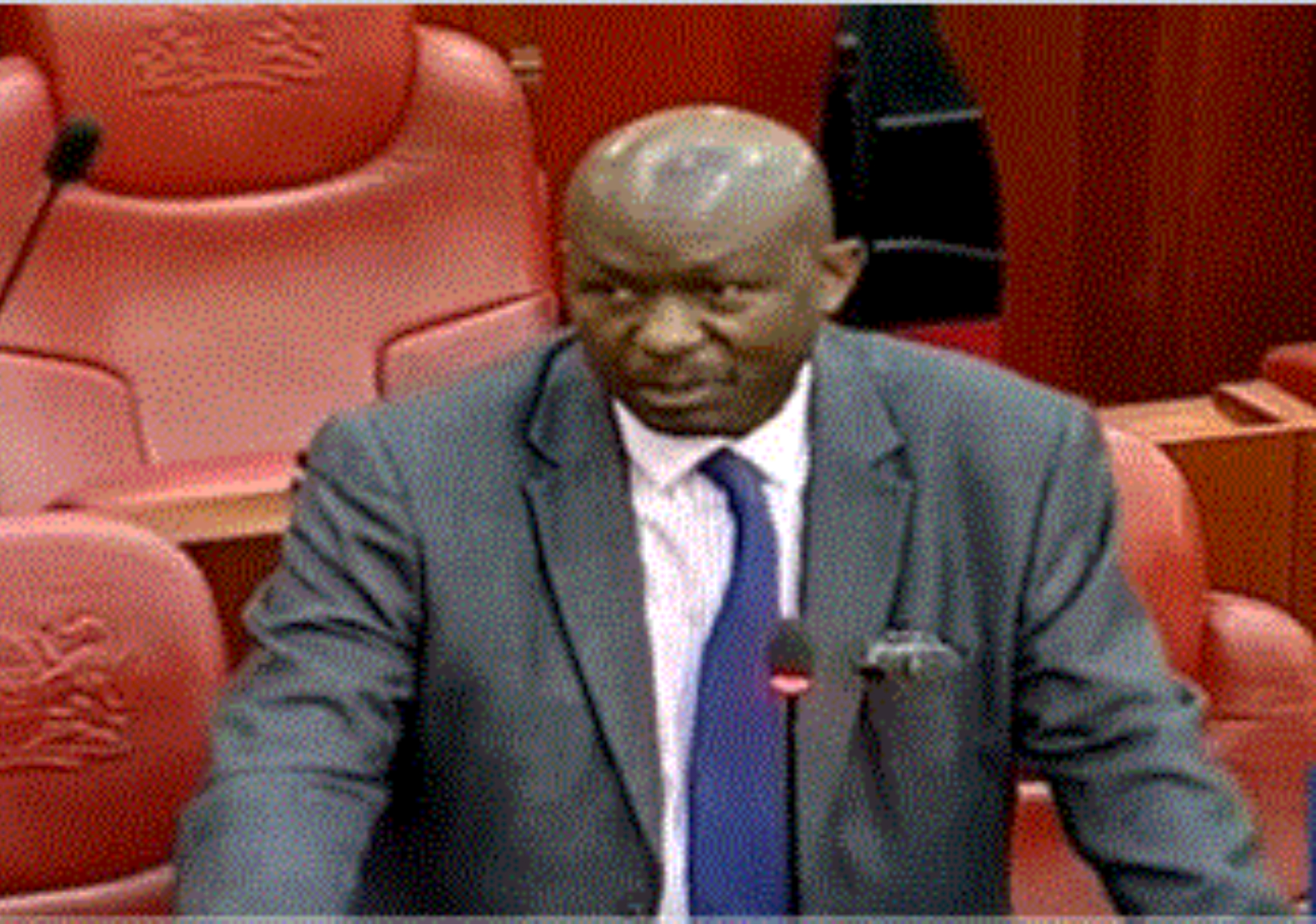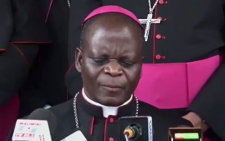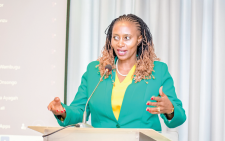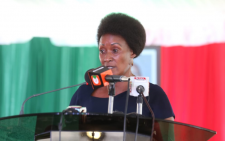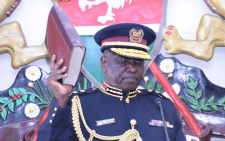The government could have arrested the rot at the Sports Kenya that is now threatening the country’s readiness to host the African Cup of Nations (Afcon) 2027 had it acted on a report by the Auditor General.
The report that was a consequence of an audit of all projects planned, designed and implemented under the Ministry of Sports docket, particularly under Sports Kenya uncovered procurement irregularities including valuation of bidders, lack of subcontractors’ contracts and payments above valuations for contractors.
Overall, the Auditor General faulted the Ministry of Sports honchos for spending billions of taxpayers’ money on projects that do not show value for the funds after unearthing unexplained variances and irregularities totalling Sh2,829,754,720.
“The ministry should implement internal control mechanisms to prevent future mismanagement of sports activities, plan and complete sporting infrastructure, and build capacity for project teams,” chief auditor Nancy Gathungu says in her report.
Besides calling for thorough investigations into the irregularities surrounding the payment of the Sh2.8 billion, Gathungu also recommended that Football Kenya Federation (FKF) should be held accountable for their activities and should be compelled to allow auditors to conduct a special audit of their accounts.
The audit report has emerged at a time controversy has rocked Sports Kenya over the tenure of its long serving Director General Pius Metto who should have proceeded on terminal leave in June ahead of his retirement in December in accordance with his contract.
Sports PS Peter Tum has not shown willingness to initiate the process to replace Metto, who has since remained in office.
Sporting activities
The contracts involved 27 infrastructure projects and 10 sporting activities funded by the government through the Ministry of Youth Affairs, Sports and the Arts for the ten years between 2013-22.
The report puts the management of Sports Kenya on the spot over prudent administration of public funds with fears that completion of the contractual works will lead to escalation of the total cost of the project.
Despite billions of shillings having been dished out to contractors for the construction of eight county stadiums and refurbishment of others, reality on the ground depicts a different picture with several of them abandoned.
Renovation works on five premium and 10 training grounds, including Moi International Sports Centre Kasarani and Nyayo National Stadium in Nairobi, Kinoru (Meru), Kipchoge Keino (Eldoret) and Kenyatta (Machakos) stadia, were supposed to have been completed by 2017 in readiness for CHAN championship that was to be held in Kenya in 2018. Kenya later lost the chance to host the tournament that was eventually held in Morocco.
Some of the projects were abandoned along the way while others, work is yet to start despite payments having been made.
The Sports ministry has also been flagged over delayed contractor hiring, failure to provide architectural drawings, hydrogeological survey reports, payment vouchers, poor workmanship, and delayed payments.
The audit by the Auditor General was conducted following a request by then Cabinet Secretary for Sports Ababu Namwamba in a letter dated January 11, 2023 seeking to evaluate the value for money of public funds used for Stadia construction and sporting activities, verify the construction standards, and authenticate the procurement process.
The examination revealed that Sh2,829,754,720 could not be accounted for and recommended that implementation of internal controls to prevent future sports mismanagement alongside bringing all the parties responsible to book.
Among the itemized facilities is the Kamariny Stadium where the audit revealed that interim payments of Sh45,536,729 were made without supporting documents.
“The noted procurement irregularities include non-evaluation of bidders, lack of subcontractor contracts, and extension of period,” the Nancy Gathungu audit summary documents read in sections.
The report cited instances of inflated costs, like in the case of Kasarani Sports Complex where the figure rose from Sh2.4 billion to Sh3.18 billion without any explanation. Likewise, the initial cost of refurbishing Kipchoge Keino Stadium had been set at Sh1.86, then moved upwards to Sh2.65 billion before subsequently being put at Sh3.5 billion without any explanation.
No sub-contractor
At Kipchoge Keino Phase one, the audit indicated that there were no sub-contractor contracts provided for the audit.
In addition, it revealed that there was delayed hiring of contractors and overpayments of Sh52,770,898 above the quantity surveyor’s valuation with Metto being fingered out for blame.
For Kipchoge Keino Phase II, the Auditor General further unearthed irregularities such as multiple contract extensions, exclusion of responsive bids, non-provision of audit documents, increased variation between BoQ and certified amount, and structural changes without revised drawings and approvals.
Here, Metto and Tum are accused of having increased the cost by Sh79,632,390 without evaluation of financial appraisal.
“All payments should be made based on evaluation between BoQ and certified amounts,” the Gathungu observed.
Gathungu at the same time singled out Kinoru Stadium saying there was no documented site handover before the commencement of the works. “Further, there was a variation of the contract on builders’ work not associated with initial works of the refurbishment of the stadium totalling Sh40,184,270. In addition, payment vouchers for civil and building works amounting to Sh182,594,390 were not provided for audit,” stated Gathungu.
She also questioned the variation of the cost and unsupported payment vouchers amounting to Sh222,778,660.
Provide engineers
Her report further revealed irregularities in the Nyayo National Stadium project including failure to provide engineers with estimates, payment of works without a valid contract, undefined works, double contracting of CCTV works, poor workmanship, non-recovery of Western wing mobilization fee, unsupported expenditure on builders, and non provision of documents.
“Further, there were payments for undelivered electrical goods amounting to Sh10,476,850. In addition, Interim Payment Certificates amounting to Sh16,420,350 were not provided for audit,” the audit read in sections.
She faults Metto and Tum over unsupported payments, double payments and payment for undelivered goods, all amounting to Sh328,017,977. A review of documents in respect of Marsabit stadium revealed irregularities such as unsupported contract variations of Sh71,767,739, lack of sub-contractors’ contract agreements, and direct payment of sub-contractors of Sh922,808.
“Further, payments amounting to Sh239,849,681 were made and which were above the certified works in addition to a lack of variation orders supporting bore hole drilling. There were also payments for uncompleted works relating to borehole drilling amounting to Sh7,090,200,” revealed Gathungu.
The audit revealed irregularities in other sporting activities including the World Rally Championship (WRC) including a 45 per cent work variation on the presidential pavilion instead of the legally accepted 25 per cent totalling Sh48,311,328, unapproved provisional sum, and irregularities in interim payment certificates amounting to Sh73,696,350.
“The sum includes Sh4,518,000 for the purchase of an old standby generator that does not meet the required specifications. The WRC Service Park was negotiated through restricted tendering without meeting procurement processes, and a variation of Sh419,840 was approved without necessary approvals. In addition, the builders, electrical and mechanical works pertaining to Presidential Pavilion certificate No. 5 totaling Sh105, 129,310, Sh13,794,010 and Sh26,714,355 respectively were not supported with details such as description of works executed and paid for,” the audit documents read in sections.
Gathungu further unearthed the irregular extension of term of in office for the organising committee steering the International Amateur Athletics Federation (IAAF) under-20 event.
The officers are reported to have incurred unbudgeted expenditures totaling Sh747,406,329 after expiry of their term.

